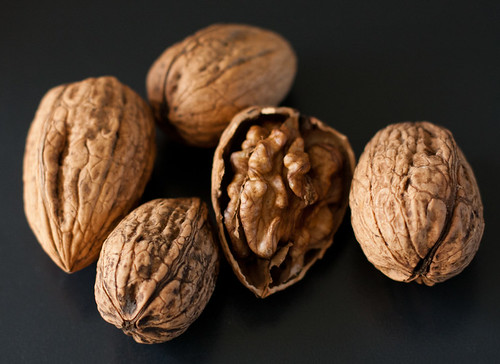I was recently asked about my top ten pieces of nutrition advice. You might be surprised by a few of my suggestions, but I promise you: I’m telling the truth. I have a lot of experience working with individuals and families, and if you’re looking to improve your nutrition, start here:
1. EAT!!
It still surprises me that people think not eating is the key to losing weight. It is just the opposite. Eating regularly throughout the day is essential for weight loss as it keeps your metabolism up and encourages burning calories instead of storing them.
2. Keep the carbs.
Our carbohydrates, which include our starches, fruit, milk and anything else that breaks down into sugar, are an important part of a balanced diet. They are our energy foods, our brain foods and in my opinion our “can’t function without them” foods. My advice is keep the carbs, but learn how much is right for you.
3. Aim for a variety of omega fats from foods rich in polyunsaturated fat.
Seafood, which provides DHA, an omega fat associated with brain health (among other benefits), should be balanced with sources of ALA, found in ground flaxseed, walnuts and canola oil. It is important to keep in mind that ALA will convert into DHA once digested. The conversion of DHA from ALA is not as strong as consuming DHA directly but still very good for you. Bottom line: be sure to aim for both DHA and ALA!

4. Only follow a gluten-free diet if you have an intolerance or Celiac disease.
Avoiding gluten, a starchy protein found in many different foods from starches to marinades, will not help you lose weight or improve your overall diet. The only people that should avoid gluten are those with an allergy or intolerance or individuals diagnosed with Celiac disease.
5. It isn’t hard to eat better.
Improving our diet is simply about moving forward one step from where we are today. In other words, if you only eat vegetables once or twice a week then figure out how to eat them every day. Small, concrete, attainable goals will help you feel successful and encouraged.
6. Eating well isn’t too expensive, but it does take planning.
I frequently offer people tips on how to follow a budget while still following a healthful diet. One of the best ways to save money and still eat well is simply to plan. I promise you that avoiding the need for convenience items and fast food will keep you on budget and save you money in the long run.
7. Don’t overlook importance of staying hydrated throughout the day.
Staying hydrated is vital in order to reduce risk of dehydration, constipation and even to help with weight loss (we often turn to food when we are actually thirsty). Remember, that most calorie-free beverages, some produce, low-sodium broth and other foods can provide fluid if you are bored with water.
8. Organic foods don’t help you lose weight or reduce risk of chronic disease.
Organic foods are definitely better for our environment (especially when locally sourced) and are desirable for consumers trying to increase control of what goes in their body by avoiding pesticides, hormones and other undesirable substances. However, it is important to remember that these foods provide the same calories, saturated fat, cholesterol or other potentially weight gaining or heart unhealthy ingredients.
9. Become a food label reader.
Reading labels (and especially noting the portion size) is essential for knowing what you are eating. If you don’t read then you simply don’t know. Of course, if you are shopping with Guiding Stars, we’ve done most of the work for you!
10. Want to lose weight? Grab a piece of paper and a pen.
Write down everything you eat (or use one of the many food log programs available for smartphones) as you eat. Don’t wait until the end of the day, as you may not be able to recall everything (including that little piece of chocolate you grabbed off your colleague’s desk at 3pm). I guarantee that you will learn something about your diet that will help you lose weight.